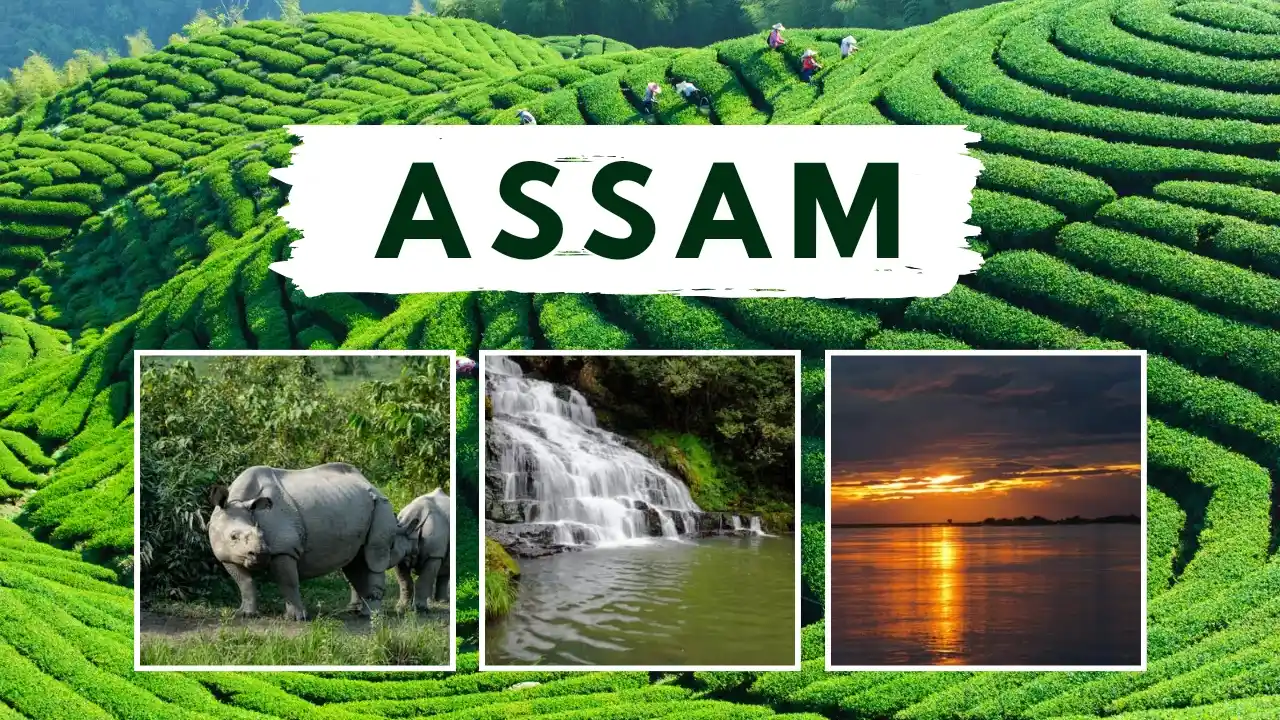Assam: Jewel of Northeast India’s Biodiversity and Cultural Heritage

Exploring Assam’s Natural Splendor: A Haven of Biodiversity and Cultural Riches
Desk Report, June 24, 2024: Assam, a northeastern gem of India, is a land of vibrant culture and unparalleled natural beauty. Nestled in the lap of the Eastern Himalayas, Assam is renowned for its diverse ecosystems, unique wildlife, and picturesque landscapes. This fascinating state offers an enticing blend of biodiversity and tourism that draws nature lovers, adventure enthusiasts, and cultural explorers from across the globe.
Assam’s rich biodiversity is one of its greatest treasures. The state is home to an array of ecosystems, from lush forests and sprawling grasslands to riverine landscapes and wetland habitats. These diverse environments support an impressive variety of flora and fauna, some of which are found nowhere else in the world.
One of the most celebrated wildlife National Park in Assam is Kaziranga National Park. This UNESCO World Heritage Site is famed for its population of the Indian one-horned rhinoceros, which constitutes about two-thirds of the world’s population of this endangered species. The park is also a haven for tigers, elephants, wild water buffaloes, and a myriad of bird species. The vast stretches of tall elephant grass, marshland, and dense tropical forests provide an ideal habitat for these majestic creatures.
Another gem in Assam’s ecological crown is Manas National Park. This park is not only a UNESCO World Heritage Site but also a Tiger Reserve, Elephant Reserve, and Biosphere Reserve. Manas is known for its rare and endangered species, including the Assam roofed turtle, hispid hare, golden langur, and pygmy hog. The park’s stunning landscape, characterized by its rich biodiversity and scenic beauty, makes it a must-visit for nature enthusiasts.
Dibru-Saikhowa National Park, situated in the floodplains of the Brahmaputra and Lohit rivers, is a haven for birdwatchers. The park is known for its vibrant avian population, including both resident and migratory birds. Species such as the white-winged wood duck, spot-billed pelican, and Bengal florican can be spotted here. The park’s unique combination of deciduous forests, grasslands, and wetlands creates a rich mosaic of habitats for various bird species.
Assam’s tourism industry thrives on its natural beauty and cultural heritage. The state’s tourism department has undertaken several initiatives to promote sustainable tourism and showcase its ecological and cultural wealth to the world.
Ecotourism is a key focus in Assam, encouraging visitors to explore its natural wonders while promoting conservation efforts. Activities such as wildlife safaris, birdwatching tours, and nature treks are popular among tourists. Kaziranga and Manas National Parks offer guided jeep safaris and elephant rides, providing an up-close view of the wildlife and landscapes. River cruises on the Brahmaputra also offer a unique way to experience Assam’s natural beauty.
Assam’s rich cultural heritage is another significant draw for tourists. The state is known for its traditional festivals, dance forms, music, and crafts. The Bihu festival, celebrated with much fervor, showcases Assam’s vibrant culture through traditional music, dance, and feasting. Visitors can also explore the state’s historical sites, such as the Ahom Kingdom ruins in Sivasagar, which offer a glimpse into Assam’s illustrious past.
For adventure seekers, Assam offers a plethora of activities set against its stunning natural backdrop. Trekking in the hills, river rafting on the Brahmaputra, and exploring the caves of the North Cachar Hills are just a few of the thrilling experiences available. The state’s varied terrain provides ample opportunities for adventure sports, attracting enthusiasts from around the world.
While Assam’s biodiversity is a major tourist attraction, it also faces several conservation challenges. Habitat destruction, poaching, and human-wildlife conflict are significant threats to the state’s wildlife. Efforts are being made to address these issues through stricter enforcement of wildlife protection laws, community-based conservation programs, and awareness campaigns.
Community involvement is crucial for the success of conservation efforts in Assam. Several initiatives have been launched to engage local communities in protecting the state’s natural heritage. Programs that promote sustainable livelihoods, such as eco-friendly tourism and handicraft production, help to reduce dependency on natural resources and encourage conservation.
The government, along with various non-governmental organizations (NGOs), plays a vital role in conservation efforts. Projects aimed at habitat restoration, anti-poaching measures, and wildlife monitoring are actively pursued. The Assam Forest Department, in collaboration with NGOs, works tirelessly to safeguard the state’s biodiversity through a combination of policy measures and on-ground actions.
Assam, with its rich biodiversity and vibrant tourism offerings, is a destination that captivates the hearts of all who visit. From the lush landscapes of Kaziranga and Manas to the cultural richness of its festivals and heritage sites, Assam offers a unique and enriching experience. By promoting sustainable tourism and strengthening conservation efforts, Assam continues to protect its natural treasures while welcoming visitors to explore its wonders. The state stands as a testament to the harmonious coexistence of nature and culture, inviting the world to witness its unparalleled beauty and diversity.
Also read: Morigaon District Begins Eviction Drive to Clear Encroached Government Land




